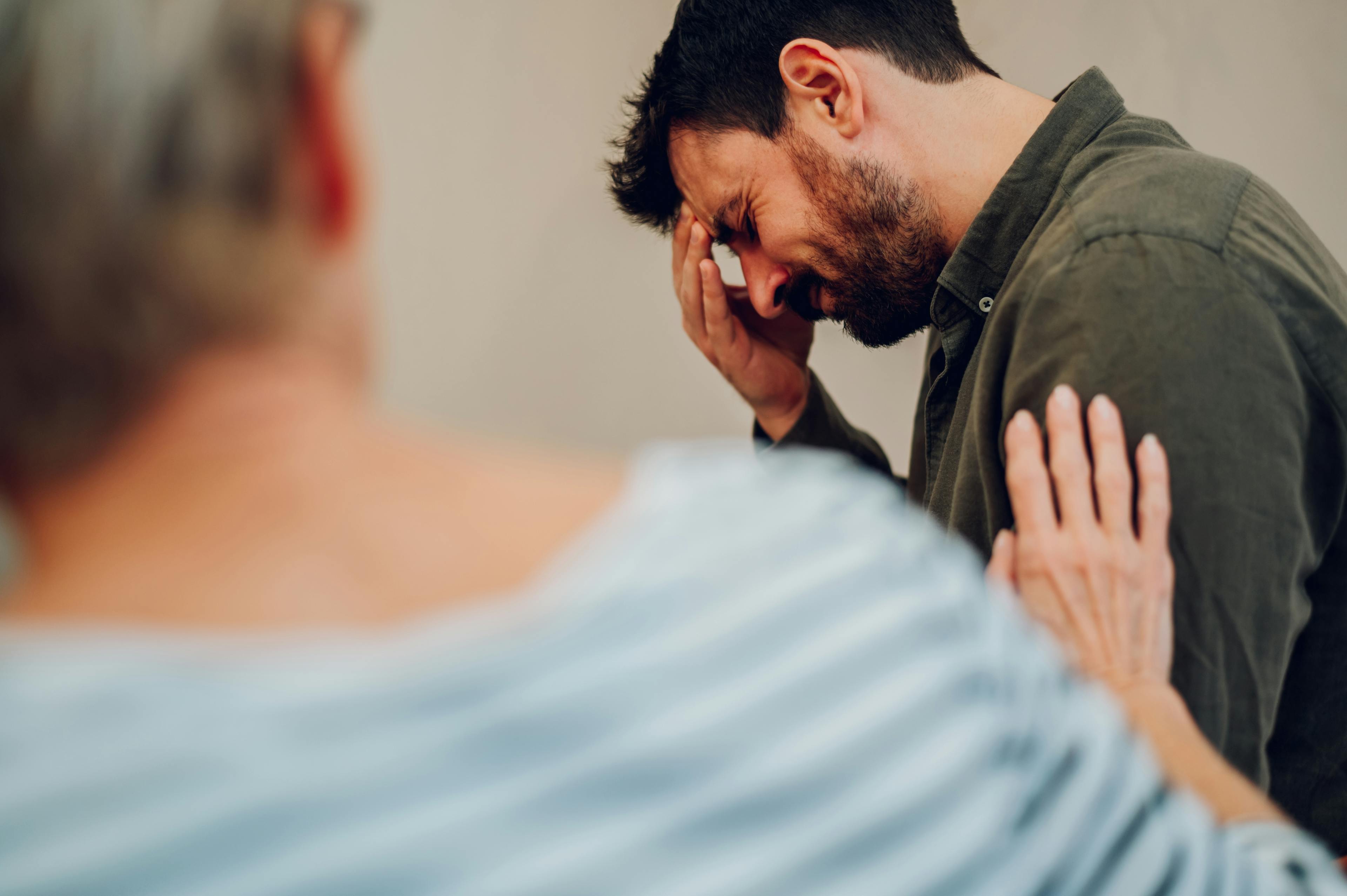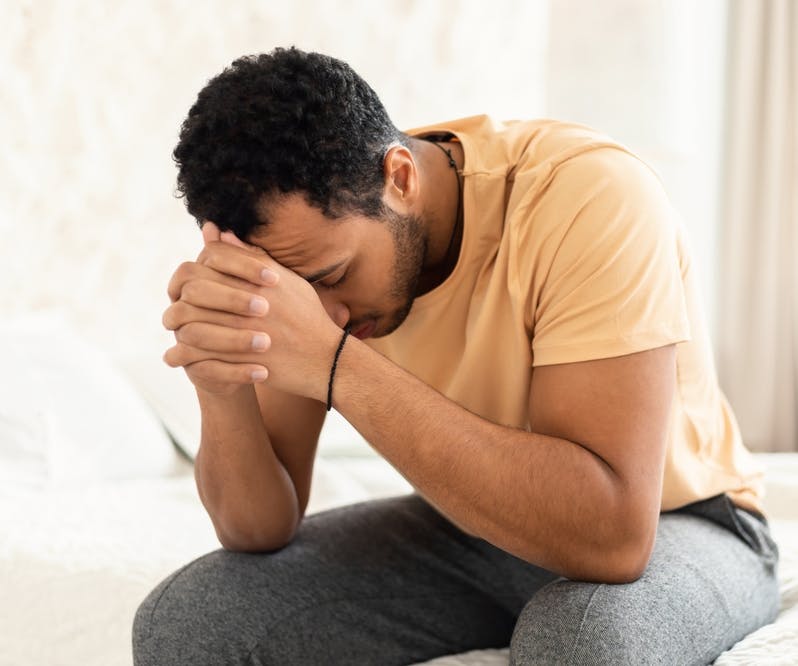We want to be there to support our loved ones, but it can be hard to think of what to say to a friend who is depressed.
It’s especially hard if you do not know where to begin. While mental health concerns have garnered a wider acceptance in recent years, there remains some stigma concerning such situations. There is a certain sensitivity involved in discussing this. Here at Mosh, we have detailed information below that can help you understand what to say to a friend who is depressed.
Understanding what to say to a friend who is depressed starts with understanding the condition.
Depression, or clinical depression, is characterised by long-lasting feelings of sadness or despair. The condition can cause physical symptoms, including muscle aches, weight loss or gain, difficulty sleeping or insomnia, or fatigue. It can also lead to issues with concentration, feelings of worthlessness or excessive guilt, and recurring intrusive or harmful thoughts of self-harm or death.[1]
Each person experiences depression differently, making it difficult to pinpoint what exactly causes it, especially in adults. Fortunately, there are safe and medically backed ways to deal with or manage depression.
The symptoms of depression in men can be further categorised based on its psychological, physical, and social effects. With regards to topics like ‘how to overcome depression’ or ‘how to reduce stress’, below is a list of some of the more common observable symptoms.
Psychological symptoms
- Persistent sadness or weariness
- Feeling helpless or having low moods
- Low self-esteem
- Strong feelings of guilt or fear
- Irritability or intolerance towards others
- Lack of motivation or interest in personal interests or hobbies
- Difficulty making decisions
- Suicidal or self-harming thoughts
Physical symptoms
- Sluggish movement or speech
- Appetite or weight changes
- Digestive issues
- Unexplained muscle pains or aches
- Tiredness or fatigue
- Loss of sexual drive (low libido)
- Menstrual cycle changes for women
- Disrupted sleep, restless sleep, or insomnia
Social symptoms
- Spending less time with or withdrawing from socialising
- Ignoring or disregarding interests and hobbies
- Having problems being productive at home or at work
- Having problems engaging with family or friends
One in eight Australian men experiences depression at some point in their lives.[2] This list of symptoms may help you in identifying depressive episodes in yourself or your friends.
Each person’s awareness of mental health issues in others can vary, just as each person adapts to how to relieve anxiety or how to cope with depression differently.
Some may not be aware that the person they are supporting suffers from a mental health condition. Some people may have noticed something is wrong and are attempting to intervene or seek medical care on a loved one’s behalf. Finally, some people may have supported a friend or loved one before for similar conditions and wish to continue helping others.
The good news is that there are many ways in which we can help, even if we’re at a loss on what to say to a friend who is depressed.[3]
It’s important to accept your friend or loved one as they are in these moments and not judge them during this difficult time. Encourage them to help themselves or provide companionship for activities like being physically active, eating a balanced diet, or participating in mutual hobbies or interests.
Patience is important in these situations. Those who are depressed may become isolated and find leaving their homes difficult. Keep in touch with them by messaging, calling, or meeting in person whenever possible.
Last but not least, sometimes the best advice on what to say to a friend who is depressed is to simply say nothing and listen. It is just as important to let them know you care and that you’re willing to listen, no matter what the situation may be.
If you believe your friend or loved one is at risk of self-harm, reach out immediately for medical intervention or support from mental health services.
Your Mosh Practitioner may suggest a variety of treatment options for your friend or loved one suffering from mental health conditions such as depression or anxiety.[4] Below are just a few of the possible options.
Counselling
Counselling is a form of psychotherapy in which mental, emotional, and behavioural disorders are addressed through discussion and listening. Counselling aims to help or guide a patient towards understanding the cause or causes of their mental health concerns. Counselling can also help with understanding what to say to a friend who is depressed.
Psychotherapy
Psychotherapy is the broader umbrella of mental health treatments that include counselling, as well as other forms of therapy, such as cognitive behaviour therapy (CBT) and combination therapy.
Medical treatments
In some cases, other forms of treatment may be aided by prescription medication. Thankfully, there are many medications available that can help in managing or alleviating the symptoms of depression, anxiety, or other mental health conditions.
To help us at Mosh in assessing your or your friend’s condition, we request that the patient fill out a brief questionnaire. Based on the information you provide, and if we see that medical treatment is necessary, we will connect you with an AHPRA-registered health practitioner who can provide personalised recommendations tailored to your unique situation.
AHPRA stands for the Australian Health Practitioner Regulation Agency, which regulates the accreditation and registration of health practitioners in the country.
If someone you know has symptoms of depression, you can connect them with doctors who can provide the necessary support.
Mosh is an online healthcare platform that aims to help Australians from all over the country address or manage personal health concerns at their own pace or comfort. Our health practitioners are all Australian and have experience in treating various health concerns. These concerns range from mental health awareness and treatment to weight loss and hair loss.
From helping people find answers to questions like ‘What to say to a friend who is depressed?’ ‘How to improve mental health?’ we want to be there for you.
Your emotional health and wellbeing are important for a more fulfilling and healthier lifestyle. When you need support or want to learn what to say to a friend who is depressed, connect with a Mosh practitioner.

